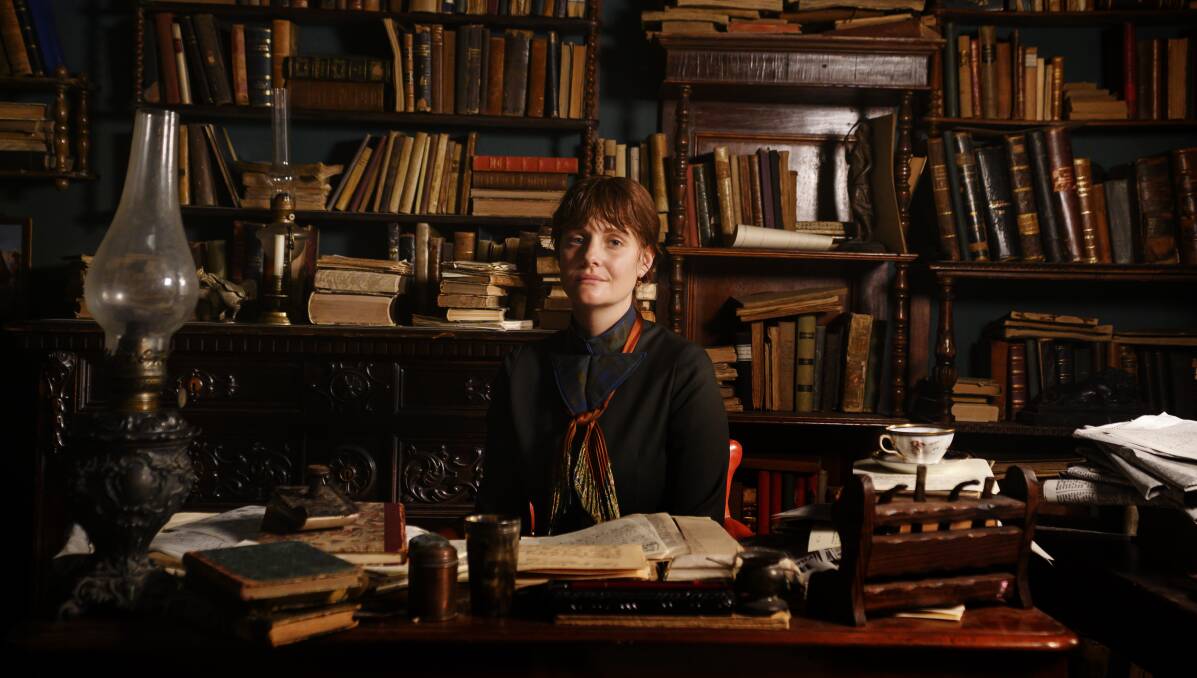Miss Marx (M, 107 minutes)
Subscribe now for unlimited access.
$0/
(min cost $0)
or signup to continue reading
3 stars
Details of the family life of a titan of modern philosophy may hold some surprises for those of us who only know Karl Marx as the author of the original texts of communist thought and a pre-eminent critic of capitalism.
It's enough of a profile in anyone's language, but what goes on in the background of famous lives can be interesting too.
It was news to me to find out in this Italian-Belgian co-production in the English language that Marx had married his childhood sweetheart, a woman four years his senior for whom he had a lifelong devotion.
Their marriage produced seven children, including four daughters who all had, among their various names, the name Jenny, after Marx's wife Jenny von Westphalen.
Some of the Marx offspring didn't survive into adulthood, apparently because the family had to endure many years of hardship.
This biographical period drama about the youngest of the Marx daughters, Eleanor (Romola Garai), is the story of a young socialist activist and woman of letters who also worked as a literary translator and who carried her father's legacy forward.
Alongside fellow socialist activists she campaigned hard against the terrible conditions in factories that were so damaging to worker health.
When the Marx family lived in London, industry was in full swing and the pollution was shocking. Choking smog was a blight on the lives of many, and working classes lives of course the most severely affected.
There are scenes in which original black-and-white images are interpolated.

At other points, Eleanor speaks direct-to-camera about her struggle as a social activist.
She was working to improve conditions for the male, female and child workers in filthy, dangerous factories, suffering frequent fatal accidents, amputations and deadly disease.
Written and directed by Italian filmmaker Susanna Nicchiarelli, whose previous films include Cosmonaut (2009) and Nico, 1988 (2017) the film offers insights into how women in progressive circles at that time still had to struggle for equality and independence.
British actor Garai gives a spirited performance as the relatively liberated late 19th century woman, one of the first to link socialism and feminism, connecting the public sphere with the private.
There is a clever interpolation of scenes from a key work of Henrik Ibsen here. It has you guessing until the reveal that it is a performance of A Doll's House, a play that was first produced in 1879. The Gustave Flaubert novel Madame Bovary, published in 1856, also gets a mention.
And there are reminders throughout that despite what the socialist texts were saying, the equality and independence of women had not evolved naturally from socialist practice, but had had to be pursued by feminists for themselves.
A punchy soundtrack is delivered by the American punk band Downtown Boys. It makes a direct link with contemporary activism, but with mixed results. While other tracks with atmospheric piano from Gatto Ciliegia Contro il Grande Freddo are more in keeping with the time and place, it was bold of Nicchiarelli to have incorporated the raw punk sound. It makes quite the entrance during the opening credits, just before the film opens on old Karl's funeral. Downtown Boys' closing version of Springsteen's great song Dancing in the Dark was better placed.
Garai and Patrick Kennedy as Eleanor's married lover Edward Aveling, a medical doctor and fellow socialist, hold the centre as the couple. Their relationship was consistent with Eleanor's own views on marriage, and would have suited the irresponsible Aveling. He accrued considerable debt, and was into various forms of substance abuse, as we say today. There is, however, a sweet moment in which Eleanor berates him for his poor habits, then lights up another cigarette of her own.
Set in walled gardens and in book-lined drawing rooms, the film is richly textured with meticulous detail and fidelity to the times and the people who lived in 1880-1890s London. It's what you might expect of a filmmaker who also has a doctorate.
Overall, however, Miss Marx is a mixed success, with its jarring moments of punk sound, albeit brief, and in the rather awkward way it breaks the fourth wall.
Miss Marx premiered two years ago at the Venice international film festival. Old Karl may have been rolling in his grave for some time at the choice of raucous punk music that precedes his funeral.

